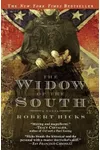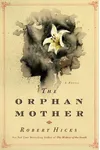Picture a Southern storyteller who turned a Civil War battlefield into a literary masterpiece—meet Robert Hicks! Born in 1951, this novelist, preservationist, and cultural maven wove the American South’s history into gripping historical fiction. His debut, The Widow of the South, became a New York Times bestseller, earning him the title of Tennessean of the Year in 2005. With a flair for music, art, and gardening, Hicks’s vibrant life infused his stories with soul.
From his log cabin in Tennessee to the national stage, Hicks’s journey was as colorful as his novels. His work didn’t just entertain—it sparked a renewed passion for preserving the South’s historic sites. Ready to dive into his world? Let’s explore the man who brought the past to life.
The Making of Robert Hicks
Born on January 30, 1951, in West Palm Beach, Florida, Robert Benjamin Hicks III grew up steeped in tales of his Tennessee roots. After earning a history degree from Lipscomb University in Nashville, he landed in Tennessee in 1974, settling in a late-18th-century log cabin called Labor in Vain. Before writing, Hicks made waves in the music industry, working as a publisher and artist manager with stars like Dolly Parton and Amy Grant. His role as 'Curator of Vibe' for B.B. King’s Blues Clubs showcased his knack for capturing culture, a skill that later defined his novels.
Hicks’s love for Southern history and outsider art fueled his creative spark. As a collector, he earned a spot among Art & Antiques’ Top 100 Collectors in America, curating treasures like Howard Finster’s works. This eclectic background set the stage for his leap into storytelling, where he blended history, heart, and heritage.
Robert Hicks’s Unforgettable Stories
Hicks’s debut novel, The Widow of the South (2005), thrust him into literary stardom. Set during the 1864 Battle of Franklin, it follows Carrie McGavock, a real-life plantation mistress who tended a Confederate cemetery. Critics compared it to Gone with the Wind for its vivid prose and emotional depth, landing it on the New York Times bestseller list within a week. Hicks wrote it to shine a spotlight on Carnton Plantation, where he spearheaded preservation efforts.
His follow-up, A Separate Country (2009), traces Confederate general John Bell Hood’s post-war life in New Orleans, exploring redemption and loss. In 2016, The Orphan Mother revisited Franklin, focusing on Mariah Reddick, a former slave from The Widow of the South. Hicks’s style—rich with historical detail and human struggle—avoids clichés, earning praise for its authenticity. His essays in publications like Garden & Gun and The New York Times further showcased his knack for Southern culture.
Whether crafting novels or co-editing works like A Guitar and A Pen (2008), Hicks brought the South’s complexities to life. His storytelling didn’t glorify the past but illuminated its lessons, making history feel urgent and alive.
Why Robert Hicks Matters
Hicks wasn’t just a writer—he was a cultural force. His novels drew thousands to Franklin, boosting heritage tourism and saving historic sites like Carnton Plantation. As co-founder of Franklin’s Charge, he helped reclaim nearly 200 acres of battlefield land, earning the Edwin C. Bearss Lifetime Achievement Award in 2019. His work challenged romanticized views of the Civil War, highlighting the stories of enslaved people and everyday Southerners.
Until his passing in 2022, Hicks lived fully, hosting seersucker parties and launching Battlefield Bourbon to honor Franklin’s history. His legacy endures in the preserved landscapes and timeless stories that continue to captivate readers, proving one person can reshape how we see the past.
- Born: January 30, 1951, West Palm Beach, Florida
- Key Works: The Widow of the South, A Separate Country, The Orphan Mother
- Awards: Tennessean of the Year (2005), Edwin C. Bearss Lifetime Achievement Award (2019)
- Died: February 25, 2022
Snag The Widow of the South and dive into Robert Hicks’s soulful historical fiction! Let his stories transport you to a South where history and heart collide.


